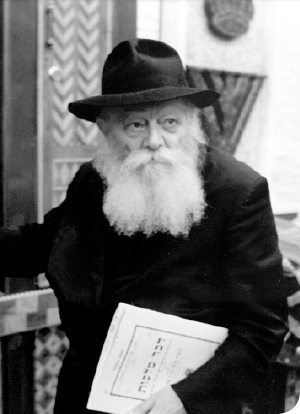Since Moshiach still has not come, it is clear that in heaven they came up with a strategy as to how to have the tzaddik delay his appeal until later… * The correct approach here may well be to take an oath according to the knowledge and consent of the public, in which case the law is that “there is no disavowal of the oath without public consent.” * From Chapter 8 of Rabbi Shloma Majeski’s Likkutei Mekoros (Underlined text is the compiler’s emphasis.)
Translated by Boruch Merkur
 The story is told of a righteous Jew, who had said that when he passes on (after a hundred and twenty years) and goes to heaven, he would demand of G-d to bring the redemption (being a Jew of such stature that he was worthy to do so, to make such a demand of G-d Alm-ghty). But the fact is that he passed away and the redemption did not come. Later on, another great Jew said that [the failure to bring the redemption in this manner] indicates that this tzaddik was given such a powerful revelation from Above that it caused him to forget his promise, as it were.
The story is told of a righteous Jew, who had said that when he passes on (after a hundred and twenty years) and goes to heaven, he would demand of G-d to bring the redemption (being a Jew of such stature that he was worthy to do so, to make such a demand of G-d Alm-ghty). But the fact is that he passed away and the redemption did not come. Later on, another great Jew said that [the failure to bring the redemption in this manner] indicates that this tzaddik was given such a powerful revelation from Above that it caused him to forget his promise, as it were.
(The Rebbe shlita said with a smile:) Since Moshiach still has not come, it is clear that
in heaven they came up with a strategy as to how to have the tzaddik delay his appeal until later…
The correct approach here may well be to take an oath according to the knowledge and consent of the public, in which case the law is that “there is no disavowal of the oath without public consent.” Even if one can convince one or even a few of the group to annul it, it doesn’t help; G-d’s Torah rules that an oath taken by public approbation is sustained!
The bottom line is that there should immediately be the true and complete redemption through Moshiach Tzidkeinu, and all the Jewish will go together with their homes – with their houses of Torah, T’filla, and Tz’daka – to the Holy Land, to Yerushalayim the Holy City, to the Third Beis HaMikdash, to the Holy of Holies. Then the staff of Aharon, which is placed there as a safeguard, will come out from its hidden place of storage, “and a tzaddik will blossom forth in his days” – “for in the days (of Moshiach) the Kehuna will return and Aharon’s staff will sprout forth,” and Moshe and Aharon will be among them.
(Shabbos Parshas Korach, 5 Tammuz 5749; Seifer HaSichos 5749 Pg. 561-562)